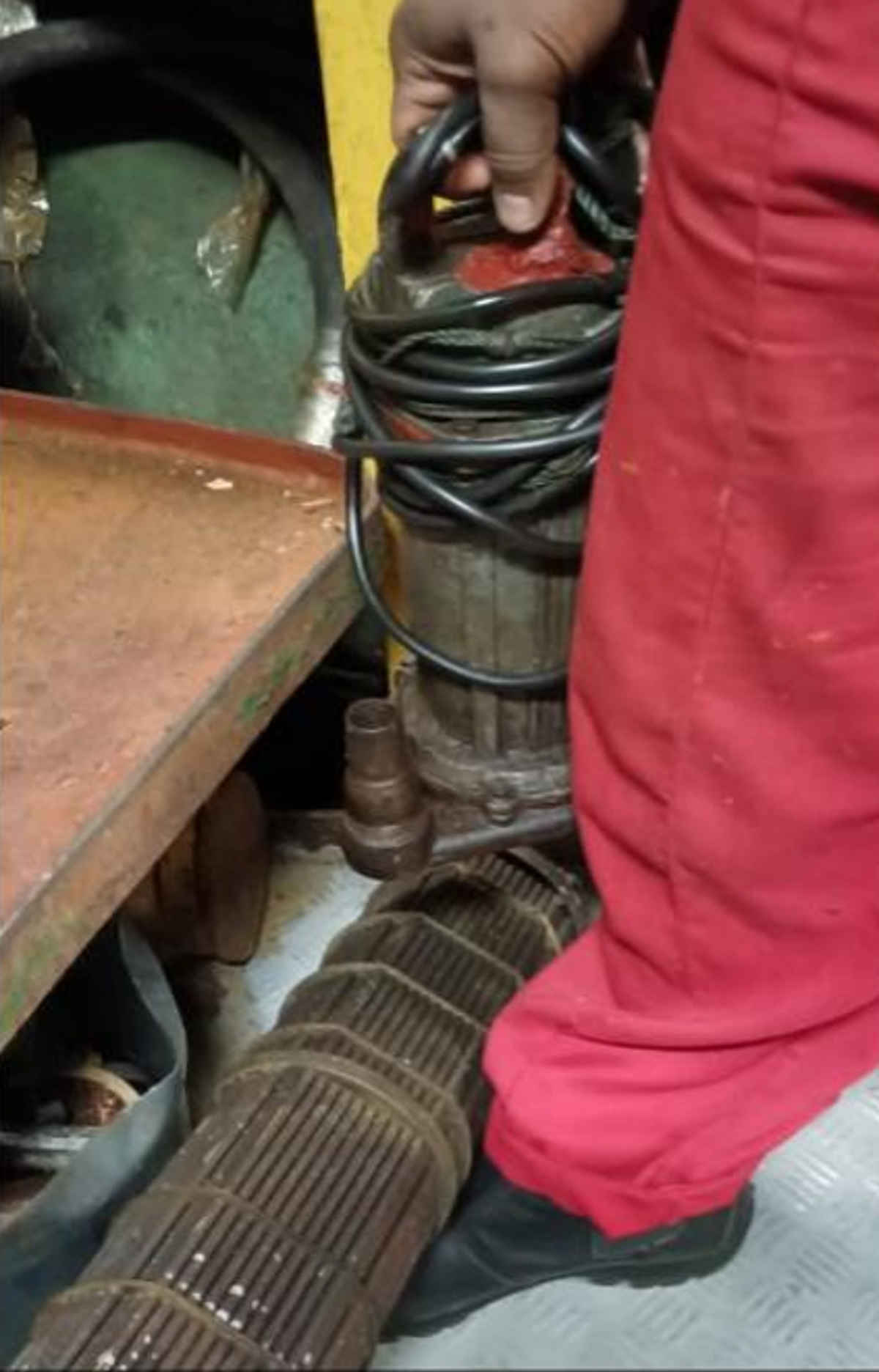Equipment fell on someone’s leg causing injury
- Safety Flash
- Published on 16 July 2024
- Generated on 26 February 2026
- IMCA SF 14/24
- 2 minute read
Jump to:
Whilst a worker was moving one piece of equipment, another piece of equipment shifted and fell onto workers leg, causing an injury.
What happened?
The person was cleaning the bow thruster room which was also used to store parts. He intended to move a portable submersible pump, but another piece of equipment (an auxiliary engine cooler) located near the pump, shifted and fell against his right leg, causing a minor injury.
However, because the injury was not properly treated immediately, it got worse and required treatment ashore. The incident was only reported to the office three days after the occurrence.

What went wrong?
- The bow thruster room was being used as a storage area.
- The auxiliary engine cooler was neither secured nor lashed down.
- The auxiliary engine cooler was used; it was surplus to requirements and it ought not have even been on board.
- The injury was not reported in a timely way.
Lessons learned
- Ensure storage is properly organised:
- Any loose parts should be well secured.
- Have a through inventory: if “spare” parts cannot be used anymore or are beyond repair, send them ashore. Don’t keep useless material on board.
- Report incidents immediately; treat all injuries seriously and immediately.
- This incident should have been reported when it first happened rather than three days later, by which time the injury had got worse.
- Further training of all crew was suggested, to raise awareness of the importance of reporting incidents or near misses as soon as they occur.
Related Safety Flashes
-
IMCA SF 14/23
12 June 2023
-
-
IMCA SF 15/22
20 June 2022
-
IMCA SF 02/21
5 January 2021
IMCA Safety Flashes summarise key safety matters and incidents, allowing lessons to be more easily learnt for the benefit of the entire offshore industry.
The effectiveness of the IMCA Safety Flash system depends on the industry sharing information and so avoiding repeat incidents. Incidents are classified according to IOGP's Life Saving Rules.
All information is anonymised or sanitised, as appropriate, and warnings for graphic content included where possible.
IMCA makes every effort to ensure both the accuracy and reliability of the information shared, but is not be liable for any guidance and/or recommendation and/or statement herein contained.
The information contained in this document does not fulfil or replace any individual's or Member's legal, regulatory or other duties or obligations in respect of their operations. Individuals and Members remain solely responsible for the safe, lawful and proper conduct of their operations.
Share your safety incidents with IMCA online. Sign-up to receive Safety Flashes straight to your email.